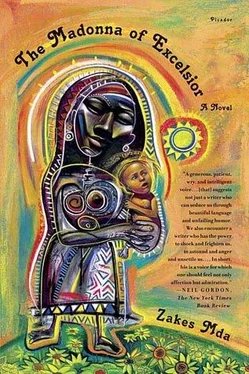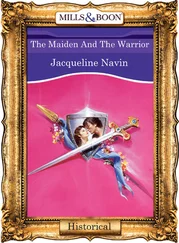“I am sorry, Niki,” Popi said.
“This means that you are now a woman, Popi,” said Niki. “You must now only play with girls your age, those who have seen what you have seen. Not the little girls you like playing with.”
Popi played dibeke or rounders with little girls because they passed no judgement on her. Six-year-olds. Seven-year-olds. Eight-year-olds. They knew she was a boesman. They had heard as much from their mothers. But they were able to see past the boesman in her. Into the warm soul that was hidden by the light-complexioned and blue-eyed mask. And now, if blood meant she could no longer play with them, then blood was a punishment. Blood would consign her to the lonely life of her mother. Although Niki’s aloofness was of her own choice. She had gradually withdrawn from the affairs of the location, and was in communion only with herself and her two children.
Popi’s withdrawal from the world of her age-mates had been an escape from their snide remarks. Even at school, she kept to herself. And when she did, they said she was too proud to mix with them because she was a misis — a white woman. But when she tried to socialise with them, they called her a morwa — a coloured girl. Jokingly, of course. But still it stung.
“Do you have a boyfriend?” Niki asked, dreading the answer.
“No!” cried Popi. The very thought of a boyfriend disgusted her. How could Niki ask her such a stupid question?
“If you sleep with a boy, you will get pregnant,” said Niki. “Don’t play with boys. Don’t even touch a boy. As for white men, stay away from them. Don’t even talk to them unless you are buying something at the store.”
THE FOLLOWING DAY, Niki and Popi went to gather cow-dung from the veld. Cattle were grazing and Popi was frolicking among them, selecting the dung that had already dried, and putting it in a sisal sack. Suddenly Niki remembered something, and sharply called Popi back.
“A girl who is in the middle of the moon is not allowed to walk among the cattle,” said Niki.
“But why, Niki?”
“Because you will bleed for a long time,” said Niki, shouting at her as usual. “You will bleed for days without stopping. You don’t want that, do you?”
Popi laughed. There could be no connection between cattle in the veld and the workings of her body.
“You can laugh all you want, but you will cry one day,” said Niki. “Don’t you know that some people work their cattle with bad medicine? Precisely to make foolish girls like you sick! I warn you never walk among cattle when you are up there, especially if they are black cattle. Never go near a cattle kraal either.”
“Only if they are black cattle, hey Niki? What if they are black and white like the Frieslands? Or fawn like the Jerseys?”
“I am talking of cattle that are owned by black people!” screamed Niki, losing patience with the impertinent girl. “Black people are full of witchcraft, that is why. Ba loya! It does not matter with cattle belonging to whites, because they know nothing about witchcraft medicine.”
“How will I know if the cattle are owned by blacks?”
“You can always see them. they are emaciated. Anyway, don’t walk among the cattle, full stop. Whether they are owned by blacks or whites.”
Once her mother said “full stop,” Popi knew that she had to shut up.
NINETEEN EIGHTY-FOUR WAS the year of passage, not only because Popi went to the moon for the first time. But also because her legs began to grow hair. The moon was part of becoming a woman. But the hairy legs were not. Even Niki said as much. Other black girls her age did not grow hair on their legs. Her peers at school discussed the changes that were happening in their bodies. The biology teacher gave lessons on how the body functioned and on proper hygiene. But no one said anything about hairy legs. About shaving or not shaving. Yet her legs grew hairier by the day. The brown hair became a source of further embarrassment. She just let it be. She dared not shave it. The belief was that those women who grew facial hair were better off leaving it like that, because if they shaved it, more would grow. Popi feared that if she ever shaved her legs, they would become even more hairy. Instead, she resorted to wearing Niki’s old frocks that covered her legs down to her ankles.
It was a year of passage for Niki as well. To a world of hermitry. It had started soon after the Excelsior 19 case and gradually became the almost total solitude that we saw this year. When we came to see her, she hid herself behind the door and instructed her children to say she was not home. She was always away in Lesotho or in Thaba Nchu, even though we saw her early in the mornings gathering cow-dung in the veld. Her close friends Mmampe and Maria gave up on her. And carried on with their boisterous lives. Her only companions were her children, who had their own lives to live. At least Viliki had a life outside the confines of the home. Popi spent all her time between home and school. Between home and church on Sundays.
THOUGH NIKI SHUNNED fellowship with the men and women of her community, snatches of gossip sought her and found her. The ear is a thief, our elders have said. As it happened one afternoon when she went searching for fields that had recently been harvested in order to get gleanings. She found one such field and joined two girls whose sacks were almost full of gleaned sheaves of wheat. Niki did not greet them. They looked her over dismissively, and then continued with their business of filling up their sacks and baring their souls to one another. Niki picked up strands of wheat and put them into her sisal bag without talking to anyone.
The two girls were slightly older than Popi. The same age Niki was when she used to go on those carefree cow-dung-gathering expeditions with Maria and Mmampe. The girls were talking about the white men in their lives. Niki heard the name of Tjaart Cronje jumping about in their conversation. She gathered that one of the girls had been fired from the butchery after Madam Cornelia Cronje had accused her of being a temptress whose mission was to lure Tjaart Cronje into a deep sinful hole. They dismissed Madam Cornelia’s concerns, ascribing them to the fact that she was old and manless and had no one to scratch her itch. She could not stop Tjaart Cronje if he wanted adventure. She couldn’t always be looking after Tjaart Cronje. Tjaart Cronje was a big man.
“Especially now that Tjaart has gone soldiering,” said one.
“And did you see how beautiful he looked in his brand-new uniform?” asked the other.
“The boeremeisies were swooning. That Jacomina Bornman. the dominee’s daughter!”
“What does she want with him? She is much older than he is. Has already been married!”
“The boeremeisies, my dear, they see him in that uniform and they want to gobble him up!”
“They do not know. they do not know that I know him in ways that they will never know.”
The girls laughed as they walked away, their sacks full, their pride fuller.
Tjaart Cronje. gone to be a soldier. The thought nagged Niki. Soldiers fought wars. Soldiers died. Tjaart Cronje was going to die. She stopped collecting the strands of wheat. And stood contemplating the meaning of it all.
Barking dogs jerked her out of her reverie. She saw Johannes Smit approach with three Alsatians on leashes. Bursting out of his khaki safari-suit as of old.
“What do you want on my farm?” asked Johannes Smit, raising his voice above the din of barking dogs. They were threatening to attack, but he held them back.
Niki had not been aware that the field was part of Johannes Smit’s farm. She did not think that he would make any fuss about it. Farmers generally did not bother people who gleaned their fields after harvest. But Johannes Smit intended to do just that: make a fuss. He threatened to let the dogs loose.
Читать дальше












